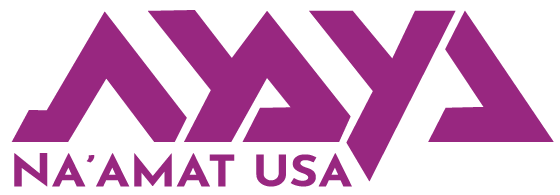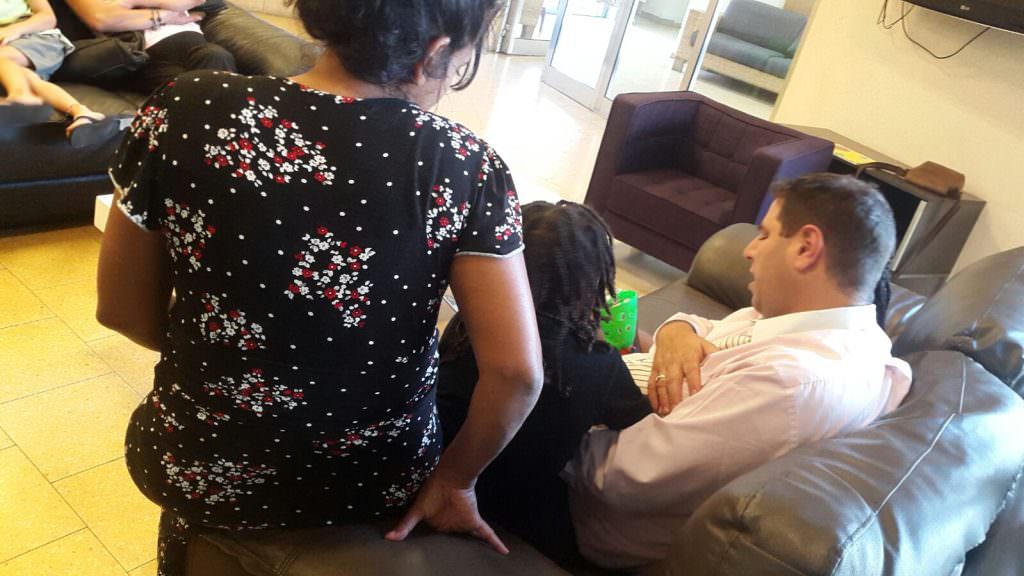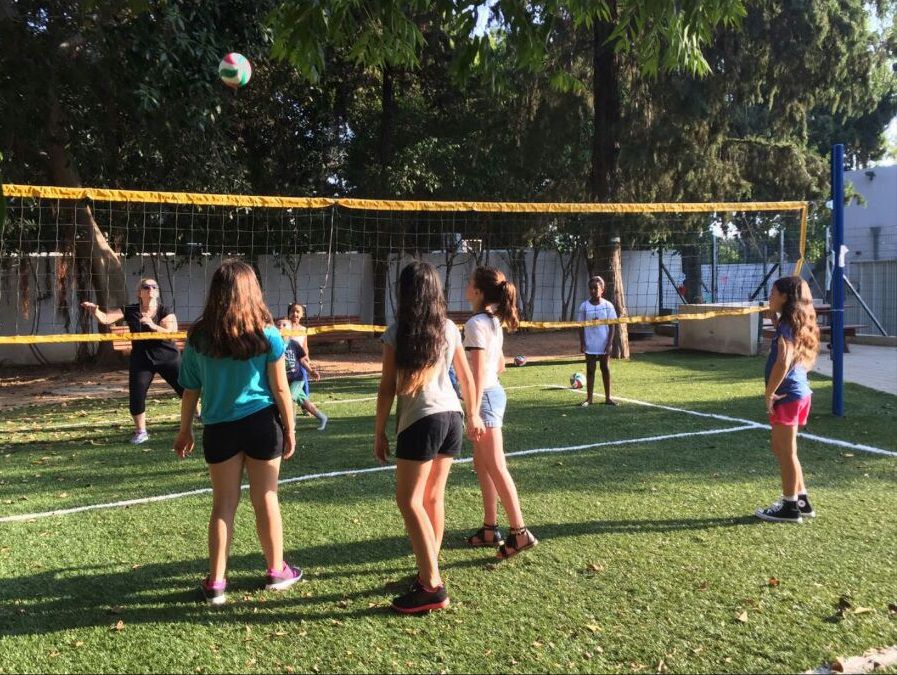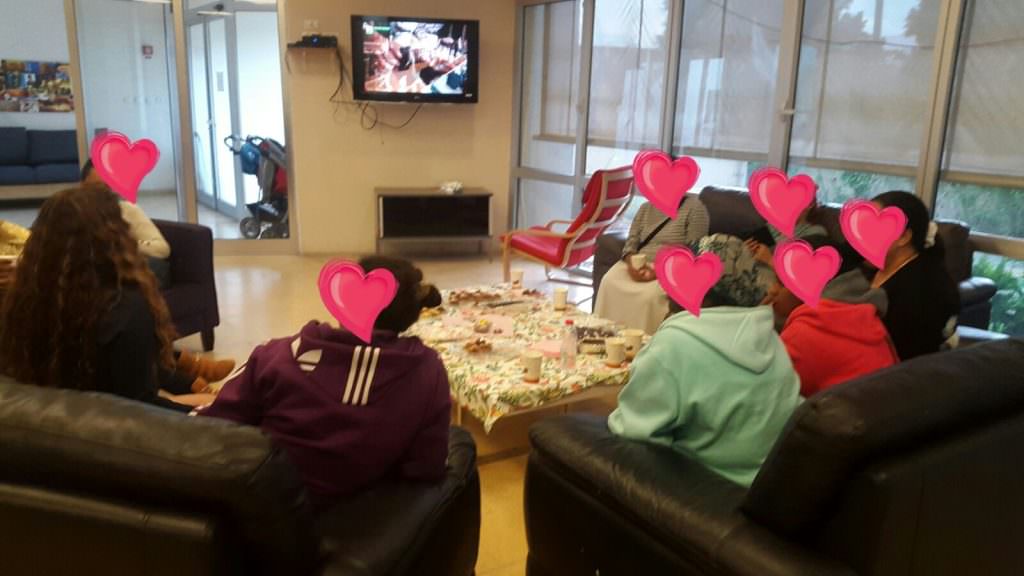Supporting the victims of domestic violence.
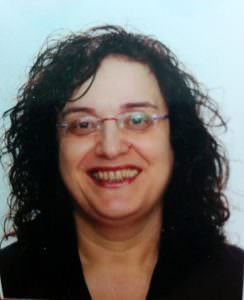
Yael Levin directs the shelter for victims of domestic violence at the NA’AMAT Glickman Center in Tel Aviv. A trained social worker, Levin has been working with battered women, their children and their spouses for more than two decades. She recently spoke to NA’AMAT USA about her work at the Glickman Center, the problem of domestic violence and her reasons for hope.
NA’AMAT USA: Tell us about the Glickman Center’s shelter for victims of domestic violence.
YAEL LEVIN: Our shelter is one of 14 shelters in Israel for women who suffer from domestic violence. The shelters operate under the supervision of Israel’s Ministry of Welfare and are run by various women’s organizations. NA’AMAT established the Glickman Center in 1993. Our shelter has a maximum capacity of 12 women and their children. We accept women from all social groups, ethnicities and religions: Jews and non-Jews, Arabs, women who were born in Israel and women who migrated here from Ethiopia and the former Soviet Union. We accept citizens and non-citizens, including refugees.
NU: What services do you provide?
YL: The primary role of the shelter is to provide a safe environment for women and their children. The women who come here are the victims of violence usually perpetrated by the husband or other family member. They come at a moment of high risk in their lives. Often, their spouse has threatened to kill them or cause serious injury. Many times, they are in the middle of a divorce or marital separation. The shelter provides psychotherapy and social support for battered women and their children, with the aim to enhance their self esteem and the experience of taking control over their lives and destiny. Our ultimate goal is to help women overcome domestic violence and achieve a violence-free future, whether or not they choose to return to their partner.
NU: How large is your staff?
YL: Our staff includes three social workers, two who treat women and one who treats children. We have two lawyers who provide legal aid regarding women’s rights, divorce, debt, social security, housing, naturalization, etc. We have a house-mother who oversees the day-to-day functioning of the shelter. We have a cook who helps the women cook and teaches them how to prepare wholesome meals. We have a social director who oversees nighttime and weekend activities. We have four nighttime staff. And we have a kindergarten teacher and three assistants. Children up to age five attend our kindergarten. Other children are enrolled in neighborhood schools. We also have several volunteers who help out. The kindergarten operates in the afternoon as an after-school program.
The Glickman Center also includes an open section that provides rehabilitative services for male perpetrators of domestic violence, as well as counseling and support for women and families.
Our staff are very dedicated and they do wonderful work. For them, it’s not a job. It fulfills their personal aspirations. They deal with difficult, traumatic situations with very few resources. They succeed in doing things that seem impossible.
NU: How much time do women typically spend at your shelter?
YL: On average, women stay here for six months. The maximum time is one year. About 20 percent of the women who come to the shelter leave after a short period of time. They are free, of course, to leave whenever they want—it’s not a jail—even if leaving means returning to a high-risk situation.
NU: What happens to women after they leave the shelter?
YL: Usually, they continue their therapeutic and social services in the community where they live. Many of the women who come here are from outside Tel Aviv. It’s good for them to be removed from the sources of violence.
NU: How successful is the program in helping women escape the cycle of violence?
YL: In most cases, women go onto much better lives after they leave the shelter. They have become empowered. They have learned to recognize risk and assess their situation more realistically. We provide them with tools to make their decision whether or not to leave their partner. We help them gain access to social services and housing support. We help them with their legal rights. It doesn’t always work. Some of the women are post traumatic. They lack friends and life skills. But we do our best to help them. That’s why we’re here. At times we see women who during their lives stay in more than one shelter. Escaping the cycle of domestic violence, despite our outmost efforts, is unfortunately is not always achievable.
NU: Despite the abuse, it must be hard for these women to choose to leave their husbands.
YL: It is a very hard decision. And leaving the husband or getting divorced doesn’t always solve the problem of domestic violence. Sometimes, when a woman gets divorced, her risk becomes more severe. Violence may continue after divorce.
NU: Is domestic violence a big problem in Israel?
YL: Intimate violence is a universal problem. The phenomenon exists in all economic and cultural sectors of society. Research shows that there are between 150,000 and 200,000 battered women in Israel. Of course, the number of children who have been exposed to violence in the home is much higher. Living in a violent family is a very traumatic experience. It causes post traumatic symptoms including stress, anxiety, eating disorders, suicide attempts, miscarriages and difficulty in managing normal life activities. In 2016, 18 women in Israel were killed by their husband or other family member.
NU: Why are the figures for Israel so high?
YL: Israeli society lives in an atmosphere of war. Every few years, it seems, a new conflict breaks out. We have been living with the threat of terrorist attacks for many years. We live under pressure all the time and it affects personal, marital and family systems. All Israeli men serve in the army, many experience war and terror attacks and some, when they come home, suffer from post-traumatic stress. One of the behaviors associated with that is violence.
NU: What are the needs of the shelter?
YL: Funding from the Ministry of Welfare covers about 60 percent of our budget. The rest comes from NA’AMAT. We would like to expand our services to children. Many of the children we see have special needs. We need more funding to better diagnose and address their developmental problems. We need a staff psychiatrist to help children and women with psychiatric problems, which we, unfortunately, see a lot. We would also like to provide more support to women who have problems with maternal care. Some of them lack a normal emotional connection with their children. Some need to be taught about proper hygiene and nutrition; with others, the problems are more complicated. We cannot properly address those problems with our current staff. We’d also like to provide more social activities for our children…classes in dance, art and theater. We’d like to build a music therapy room. We have a drum set now, but we need more. The support we receive from NA’AMAT USA is vital to our ability to continue to deliver services and resources that these women and children need.
NU: What drew you to this work?
YL: It’s an opportunity to affect the lives of women in crisis situations. The work is difficult. Many of the patients are post traumatic. We deal with their trauma all the time. But there is also hope in this work. When women reach this shelter, it can be a turning point. It can be the beginning of a new and better life. They learn to work and earn money. They learn to take better care of their children. They learn to cope with their lives in a much healthier way. Hope is important to me. It gives me the strength to carry on.
Donations to NA’AMAT USA benefit the Glickman Center for Domestic Violence Prevention and other critical NA’AMAT programs in Israel. To donate now, please visit https://naamat.org/waystogive/donate-now/
